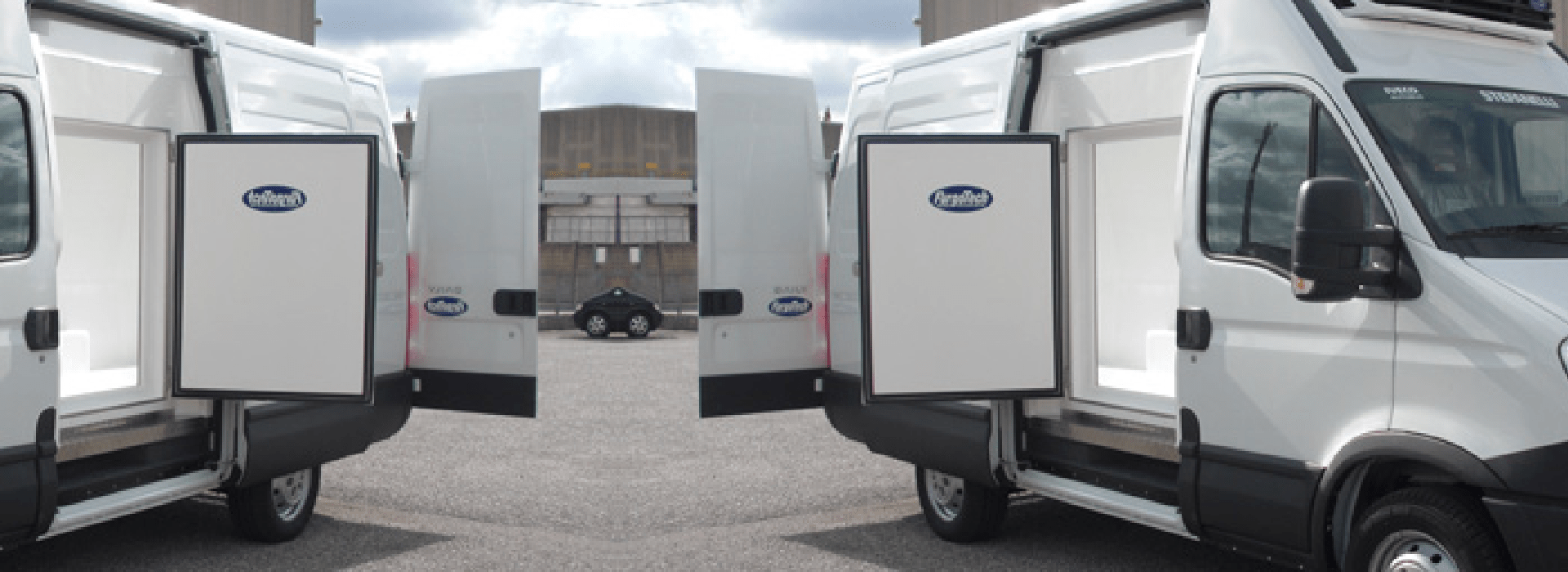
The A.T.P. certificate has a validity of 12 years, as described hereunder.
Valid for 6 years from the date of issue of the certificate.
- 3-year renewal dating from the first test carried out by an expert.
- 3-year renewal dating from the second test carried out by an expert.
- On the twelfth year, a renewal procedure must be booked and carried out at an authorised National Test Centre.
To complete the renewal test, the outfit must be intact and in good condition, with any refrigeration unit fully operational (if fitted). If damage is found due to use, the entity of this damage must be assessed and relative repairs must be performed before carrying out the test.
It is important to note that the A.T.P. certificate is an integral part of the vehicle registration document and may constitute cause for expiry of the latter, in which case withdrawal of the said documentation is envisaged, with application of the relative penalties as listed below:
- Use of vehicle with A.T.P. document expired, subject to penalty of 155.00 to 624.00 euro - Ref. Art. 80 paragraph 14 of the Highway Code
- Illegal use of vehicle with A.T.P. document withdrawn, subject to penalty of 1842.00 to 7369.00 euro - Ref. Art. 216 paragraph 6 of the Highway Code
- Failure to carry A.T.P. certificate during transit subject to penalty of 38.00 to 155.00 euro - Ref. Art. 180 paragraph 7 of the Highway Code
- A.T.P. plates missing or non-conforming, subject to penalty of 78.00 to 311.00 euro - Ref. Art. 72 paragraphs 9 and 13 of the Highway Code.
To complete the renewal test, the following documentation is required:
Original A.T.P. certificate
- Copy of front and back sections of vehicle registration document
- Copy of valid ID document of legal representative
- If the original version of the A.T.P. certificate is missing, please request a report from your local Police Station to certify loss.
Transport temperatures for fresh products
Maximum controlled temperatures during transport of fresh foodstuffs
- Raw milk transported in tanks or bins by farms to the collection centers. +8°C
- Raw milk transported in tanks from the collection centers to the heat treatment plants and packaging for direct consumption. Raw milk transported in tanks from one heat-treatment plant to another heat-treatment plant and packaging for direct consumption. +0°C +4°C
- Packaged pasteurized milk. +0°C +4°C
- Dairy products: fermented milk, cream, fresh cheeses. +0°C +4°C
- Ricotta. +0°C +4°C
- Butter. +1°C +6°C
- (Anhydrous) concentrated butter. +6°C
- Anhydrous liquid butter. above +32°C
- Meats. +1°C +7°C
- Poultry and rabbits. -1°C +4°C
- Game. -1°C +3°C
- Offal. -1°C +3°C
- Fresh fish products (to be transported always under ice.) +0°C +4°C
- Packaged cockle, including without shells, such as "chlamys" (scallops) and "pecten" (scallops). +6°C
The above-mentioned are only guideline temperatures for transport during retail deliveries, due to frequent barn door opening and unloading of goods.
Transport temperature of frozen and deep-frozen products.
Maximum temperatures during temperature-controlled transport of frozen or deep-frozen foodstuffs.
- Fish products. -18°C
- Meats. -18°C
- Offal, eggs not in shell, poultry and game. -10°C
- Butter or other fatty substances. -10°C
- Fruit ice creams. -10°C
- Other types of ice cream. -15°C
- Other foodstuffs. -18°C
- Poultry and rabbits. -1°C +4°C
The above-mentioned are only guideline temperatures for transport during retail deliveries, due to frequent barn door opening and unloading of goods.
Furgotech is at your disposal. Should you require any information or advice, please call 049/5840342 or send an e-mail to info@furgotech.it



